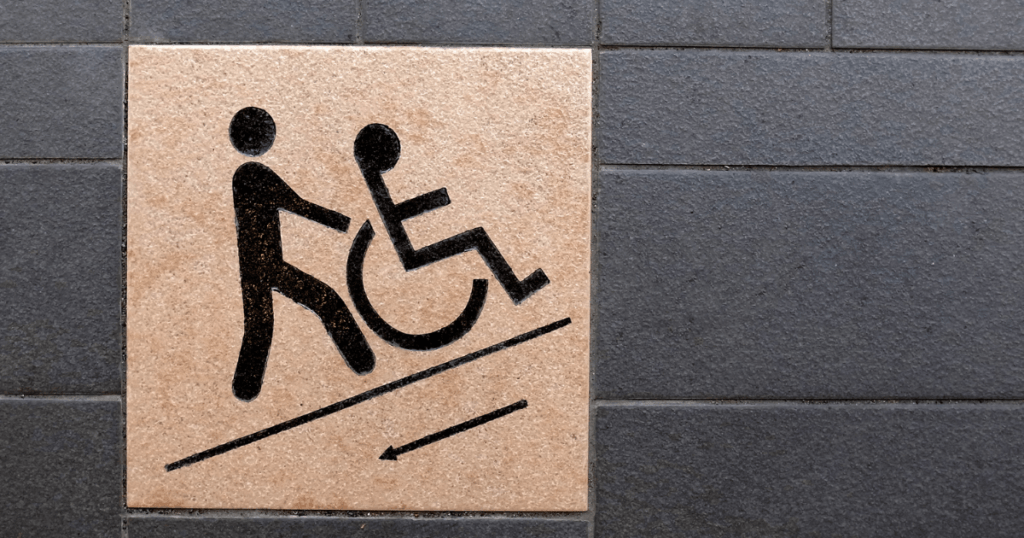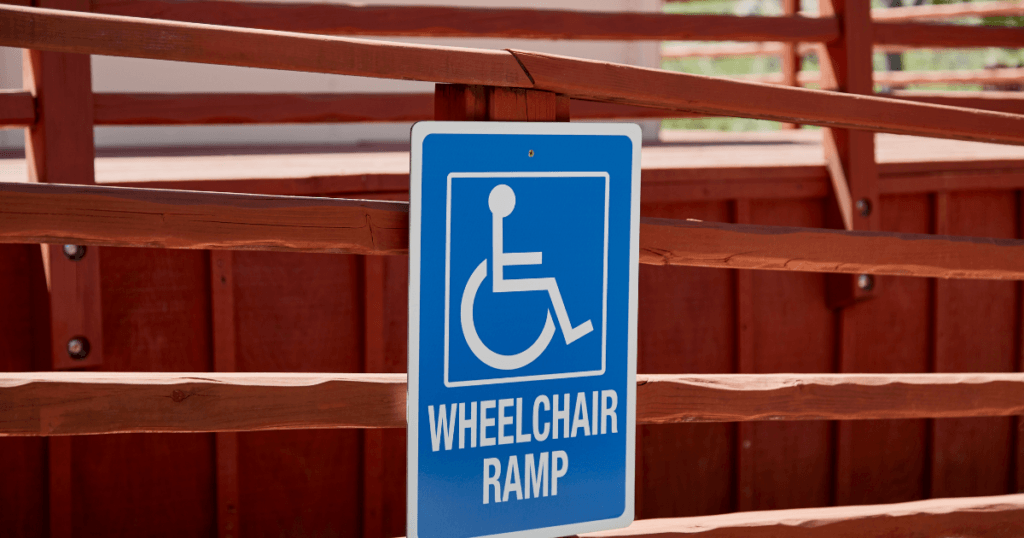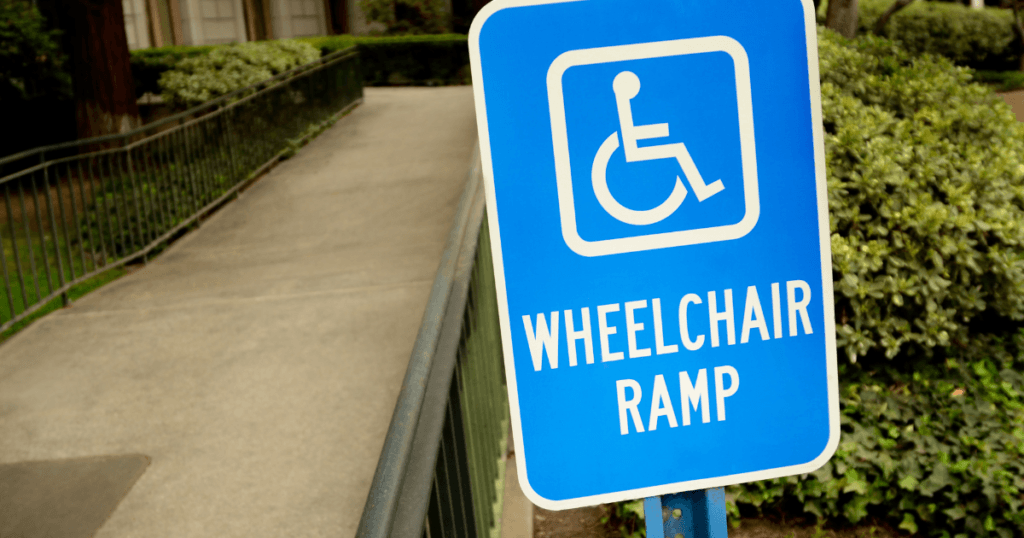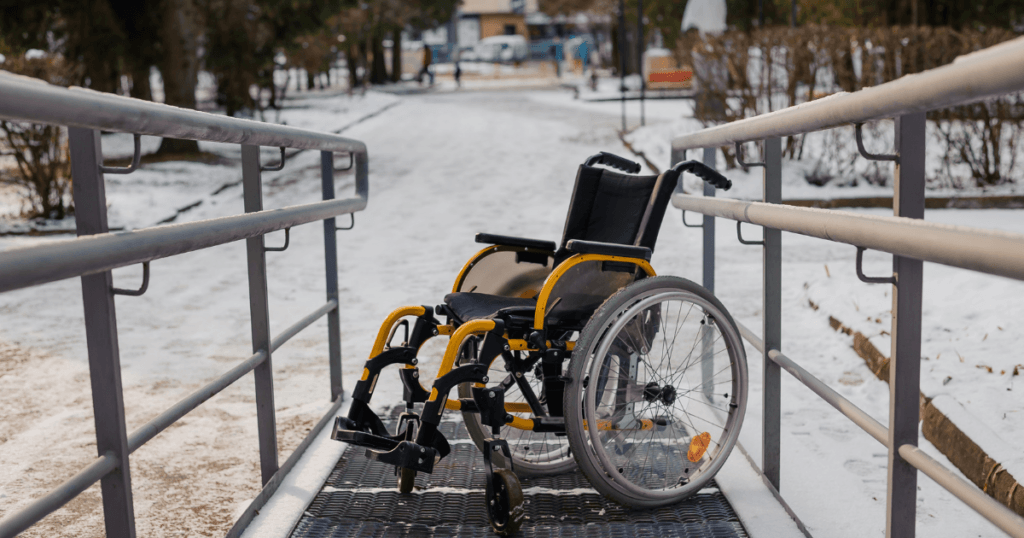Navigating the world of healthcare coverage can be challenging, especially when it comes to understanding what is and isn’t covered by Medicare. One common concern and question is: Will Medicare Cover Wheelchair Ramps?
Medicare, the United States federal health insurance program for eligible seniors aged 65 and over, offers various comprehensive benefits. However, determining if wheelchair ramps are considered medically necessary and therefore covered can be difficult.
Original Medicare, which includes Part A (Hospital Insurance) and Part B (Medical Insurance), offers many benefits. Medicare Part B is known to provide coverage for several types of durable medical equipment (DME), such as wheelchairs. But when it comes to wheelchair ramps, Original Medicare’s coverage may not always apply.
There’s some hope, though, as Medicare Advantage (MA) plans may cover wheelchair ramps. This is thanks to the CMS (Centers for Medicare and Medicaid Services) announcement on April 2, 2018, stating that MA plans could cover home and community-based supplemental healthcare benefits.
Will Medicare Cover Wheelchair Ramps-Key Takeaways
- Understanding Medicare’s coverage for wheelchair ramps can be challenging due to the requirement of medical necessity and differing Medicare plans.
- Original Medicare may not always cover the costs of wheelchair ramps, while Medicare Advantage (MA) plans might sometimes provide coverage.
- Exploring alternative funding and financial assistance options and understanding the key considerations for wheelchair ramp installation can help ensure easier mobility for those in need.

Understanding Medicare’s Coverage for Wheelchair Ramps
When it comes to your mobility needs, you might wonder if Medicare will cover the cost of a wheelchair ramp. Wheelchair ramps, along with other mobility aids, are considered durable medical equipment (DME). However, Medicare’s coverage for wheelchair ramps varies depending on your specific plan.
Under Original Medicare (Part A and Part B), wheelchair ramps are not typically covered. Although Medicare Part B covers many types of DME, such as wheelchairs and lifts for moving from beds to chairs, wheelchair ramps are not included in these benefits.
However, there is still hope for coverage through Medicare Advantage (Part C) plans. Some Medicare Advantage plans will cover the cost of wheelchair ramps if a physician deems them medically necessary for your mobility and well-being.
Your doctor must provide documentation supporting the medical necessity of the ramp to be eligible for coverage.
It’s advised that you check the specific terms of your Medicare Advantage plan and consult with the provider to determine if wheelchair ramps are included in your coverage.
When looking for a wheelchair ramp, it’s essential to consider the cost. The price of a ramp can range between $1,000 and $2,800 and includes both materials and labor. Factors that might affect the overall cost include local labor rates, ramp size, and materials used.

Criteria for Medicare Reimbursement
Medical Necessity and Physician Approval
To be eligible for Medicare reimbursement for a wheelchair ramp, it must be medically necessary for you due to your medical condition. This means that without the ramp, your mobility issues could worsen, or your recovery from a condition or treatment plan could be compromised.
You must have a face-to-face examination with your physician to discuss your need for a wheelchair ramp. If your physician determines that a ramp is essential for your mobility and approves it, they must provide a written prescription for it.
Keep in mind that the Medicare Part B coverage focuses on durable medical equipment (DME) for use in your home, so the ramp must primarily benefit you inside your residence.
Durable Medical Equipment (DME) Eligibility
DME is equipment that serves a medical purpose, can withstand repeated use, and is appropriate for use in your home. Items like wheelchairs, walkers, or scooters are classified as DME and are covered by Medicare Part B if they are medically necessary.
It is important to note that reimbursement for a wheelchair ramp may be more challenging due to variations in eligibility. A ramp may not be considered a DME, as it may be viewed as a home modification instead.
However, if your physician considers the wheelchair ramp medically necessary and it is deemed a DME, you can receive coverage under Medicare Part B. The reimbursement would be limited to the Medicare-approved amount, which is typically 80% of the approved cost. You will be responsible for the remaining 20% and any applicable deductible.

Alternative Funding and Financial Assistance
Medicare Advantage Plans and Other Programs
While Medicare Part B does not typically cover wheelchair ramps, some Medicare Advantage (MA) plans may provide coverage for them. It’s essential to check your specific plan for benefits.
Additionally, Medicaid may offer financial assistance for wheelchair ramps if you meet the eligibility criteria.
If you’re a veteran, the Veterans Affairs benefits might also help cover the cost of a wheelchair ramp. Make sure you review and understand your available benefits.
Grants and Non-Profit Support for Home Modifications
Financial assistance for wheelchair ramps may be available through various non-profit organizations and grants. Some noteworthy organizations include:
These organizations often assist seniors and people with disabilities in need of home modifications to improve their safety and accessibility. Furthermore, the United Way and the National Council on Independent Living frequently provide resources and guidance when searching for grants and financial aid.
Loans and Other Financial Options
If grants and non-profit assistance do not cover your needs, financial options are still available for seniors and people with disabilities. Some alternative funding sources include:
- Elder care loans: These loans are specifically designed to help seniors finance home modifications and other expenses related to aging.
- Reverse mortgages: A reverse mortgage allows you to borrow money against your home’s equity to pay for home modifications and other expenses.
- Private insurance: Some private insurance plans might cover wheelchair ramps or other accessibility aids. Check with your insurance provider for details.
- Medigap: A Medigap policy might cover some of the copayments and deductibles for wheelchair ramps and other durable medical equipment provided by your MA plan.

Key Considerations for Wheelchair Ramp Installation
Assessment of Home Accessibility and Safety
Before installing a wheelchair ramp, it’s crucial to assess your home’s accessibility and safety needs. Consider the number of stairs you need to navigate and the layout of your home’s entrances.
If possible, consult with an occupational therapist or home modifications professional for expert advice on choosing the right ramp for your circumstances.
Types of Ramps and Material Choices
There are several types of ramps to choose from, depending on your needs and preferences:
- Threshold ramps help overcome small changes in floor level or doorways
- Portable wheelchair ramps can be folded and transported from place to place
- Modular ramps can be easily assembled and adjusted if needed
- Permanent ramps provide a long-lasting and stable solution
Consider durability, weight, and maintenance factors when selecting a ramp material. Common materials used include:
- Wood: an attractive and natural look but requires regular maintenance
- Aluminum: lightweight, low maintenance, and resistant to corrosion
- Steel: strong and durable, but heavier than other materials and prone to rust
- Concrete: a permanent and stable solution, but more expensive and labor-intensive to install
Wrapping Up
In conclusion, the question is, Will Medicare cover wheelchair ramps? Many individuals and families face this question when considering accessibility modifications to their homes. While Medicare Part B covers durable medical equipment (DME), it does not typically include home modifications such as wheelchair ramps.
However, alternative avenues to explore include Medicaid waivers, state assistance programs, and non-profit organizations that may offer financial aid or grants for these essential adaptations. Understanding the specifics of Medicare coverage and seeking out additional resources can help ensure that individuals receive the support they need to maintain their independence and improve their quality of life.
Up Next
Does Medicare Part B cover the cost of installing a wheelchair ramp in my home?
Medicare Part B generally does not cover the cost of home modifications, including the installation of wheelchair ramps. It focuses on covering medically necessary services and durable medical equipment (DME) prescribed by a doctor for use in the home. While Medicare Part B may cover the cost of a wheelchair if deemed medically necessary, it does not extend this coverage to home modifications such as ramps.
